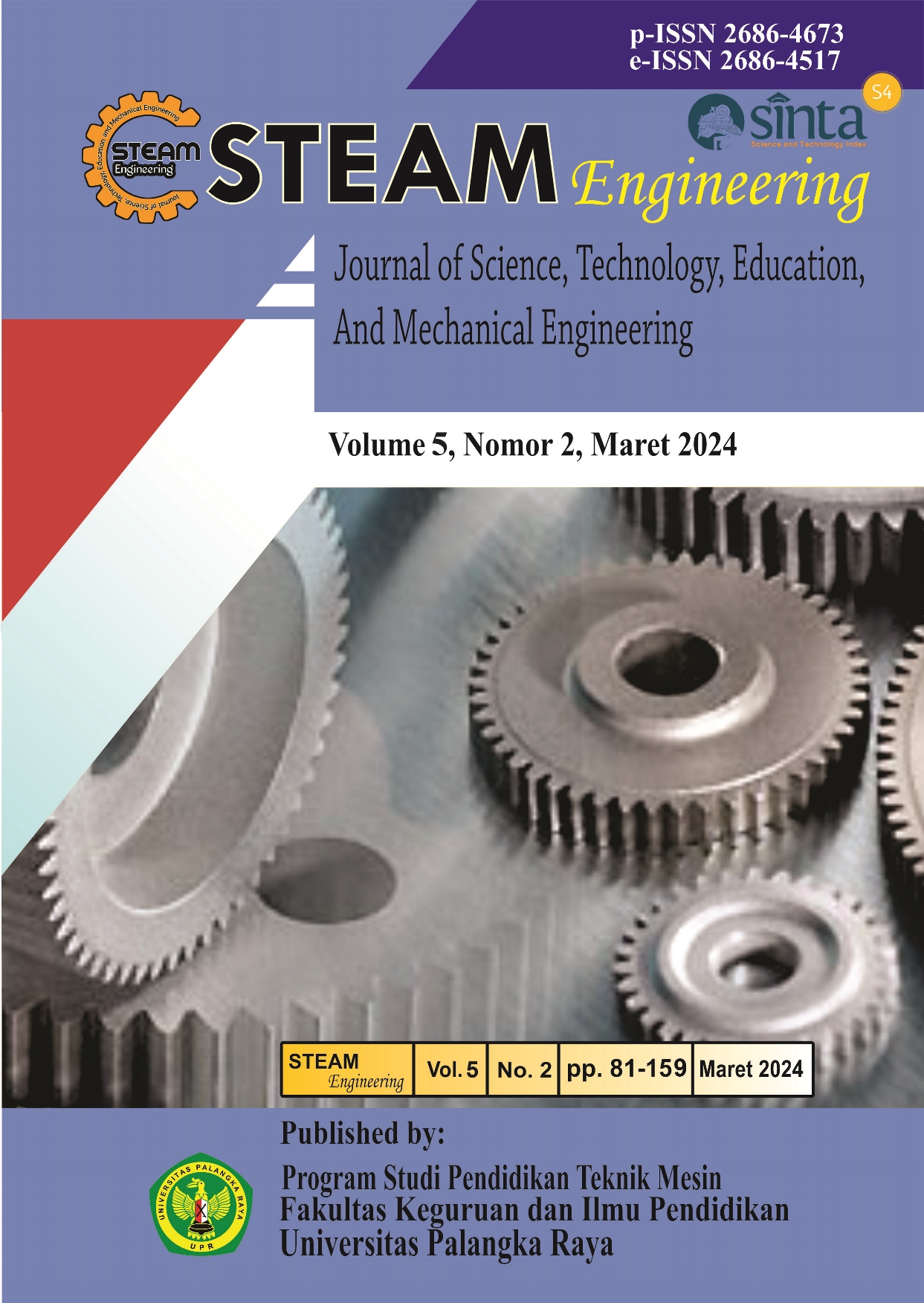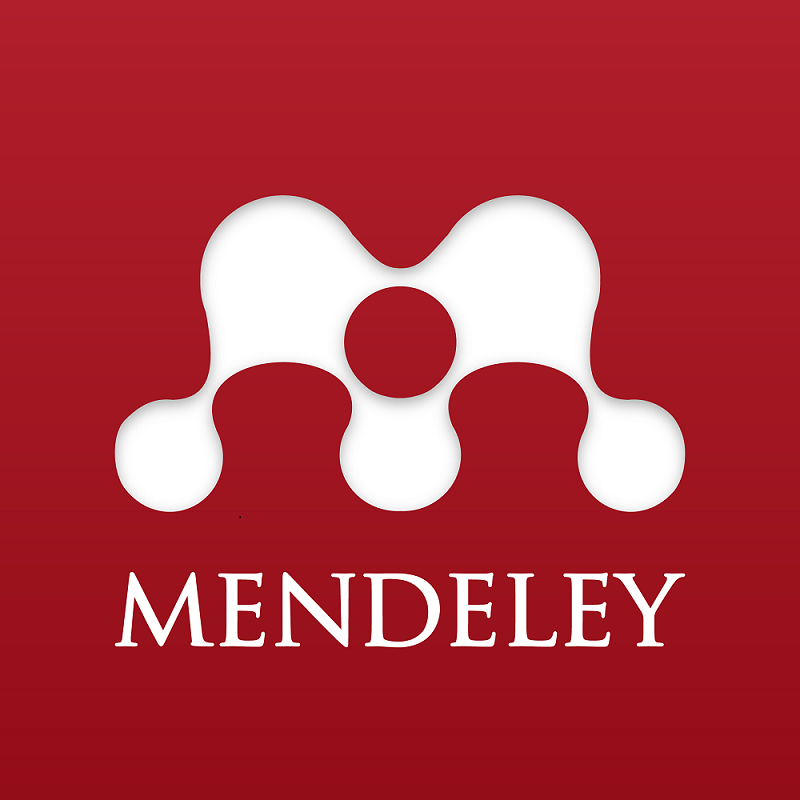PENGEMBANGAN INSTRUMEN SELF-ASSESSMENT MAHASISWA PENDIDIKAN TEKNIK MESIN PADA PEMBELAJARAN MICRO TEACHING
DOI:
https://doi.org/10.37304/jptm.v5i2.5146Keywords:
Kata Kunci : Pengambangan Instrumen, Self-Assessment, Pembelajaran Micro Teaching.Abstract
This study aims to determine whether or not the use and development of the self-assessment instrument is relevant to Micro Teaching learning in the Mechanical Engineering Education Study Program. This research belongs to the type of research and development (R&D) with a quantitative approach that aims to describe the results of systematically developing student self-assessment instruments. The sample in this study were students of the Mechanical Engineering Education Study Program class of 2016 to 2018 who had taken Micro Teaching lessons. Data collection in this study used a survey technique by distributing questionnaires to students of the Mechanical Engineering Education Study Program. The instrument used in this study is a Likert scale instrument consisting of 5 servqual dimensions. The data analysis technique used in this research is Rasch Modeling using Ministep Evaluation/Student Version of Winsteps 4.8.2.0 software. For the results of the study, it can be seen from the validity that the value of Infit MNSQ, Infit ZSTD, Outfit MNSQ, Outfit ZSTD in addition to the value of Reliability and Cronbach's Error from the respondent (person) and the instrument (item). The validity obtained from the MNSQ Infit +1.00, ZSTD Infit -0.8, MNSQ Outfit +1.00, ZSTD Outfit -0.7 for respondents. As for the validity of the instrument the value of Infit MNSQ +1.00, Infit ZSTD -0.8, Outfit MNSQ +1.00, Outfit ZSTD -0.7. The results obtained are Fit/valid based on the criteria in the Rasch modeling. The reliability obtained for respondents is 0.63, while the instrument reliability is 0.92. The results obtained from the respondents are weak based on the criteria, but in this research the results of the instruments with criteria are very good. Cronbach's alpha for the respondent obtained 0.66 while for the instrument it was 0.81 which means that the interaction between the respondent and the instrument is quite good.
Downloads
References
Asriningrum, dkk. Pengembangan Self Assessment sebagai Alat Evaluasi Pendidikan Karakter Berbasis Konservasi pada Mahasiswa Pendidikan Fisika FMIPA UNNES. Unnes Phyisics Education Journal. ISSN 2252-6935, Vol 2(3). 2013 : 40-46
Astutik, S. dan Maryani. 2007. Modul Assesment Pembelajaran. Jember : Universitas Jember
Bahrianoor. 2020. Desain Perangkat Penilaian Berbasis Self-Assessment Pada Mata Kuliah Praktikum Body Pengecatan Program Studi Pendidikan Teknik Mesin Universitas Palangka Raya Tahun 2020. Skripsi sarjana, tidak diterbitkan, Universitas Palangka Raya.
DEBORA, Debora; BIRAWA, Cakra; BUNGAI, Joni. Application of Self-learning in Basic Teaching Skills at Vocational Program. In: 5th UPI International Conference on Technical and Vocational Education and Training (ICTVET 2018). Atlantis Press, 2019. p. 535-540.
Gumilar, dkk. .2013. Penerapan Peer Assessment dan Self Assessment pada Tes Formatif Hidrokarbon untuk Feedback Siswa SMA Kelas X. Jurnal Pengajaran MIPA. ISSN 2443-3616 Vol 18(1). 2013 : 10-19
Kunandar. 2012. Langkah Mudah Penelitian Tindakan Kelas Sebagai Pengembangan Profesi Guru. Jakarta : PT Raja Grafindo Persada.
. 2014. Penilaian Autentik (Penilaian Hasil Belajar Peserta Didik Berdasarkan Kurikulum 2013): Suatu Pendekatan Praktis Disertai Dengan Contoh. Ed. Rev. Jakarta: Rajawali Pers.
Orsmond, P., Mserry, S & Reiling, K. 2005. Biology Students “ Ultilization Of Tutors” Formative Feedback: A Qualitative Interview Study. Assessment And Evaluation In Higher Education. 30, 369-386.
Permendikbud. 2013. Peraturan menteri pendidikan dan Kebudayaan Nomor 66 tahun 2013 Tentang Standar Penilaian Pendidikan.
Sudaryono. 2012. Dasar-Dasar Evaluasi Pembelajaran. Yogyakarta: Graha Ilmu
Sugiyono. 2017. Statistika Untuk Penelitian. Bandung: Penerbit Alfabeta
Sugiyono. 2019. Metode Penelitian Pendidikan Pendekatan Kualitatif, dan Kualitatif (R&D). Bandung: Alfabeta.












